#Brigitte Yorke
Explore tagged Tumblr posts
Text
Brigitte Bardot
New York, hotelroom, 1965

24 notes
·
View notes
Text

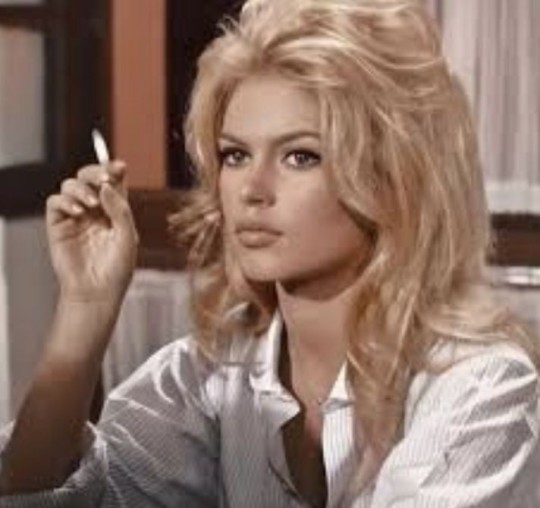


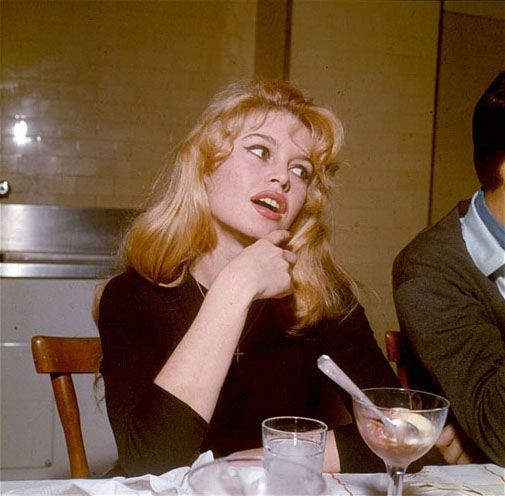

Brigitte Bardot
#brigitte bardot#french#actress#dark academia#romantic academia#chaotic academia#classic literature#light academia#literature#literature quotes#moodboard#new york#aesthetic
37 notes
·
View notes
Text

10 notes
·
View notes
Text

May 25, 1965, Carole Baker meets Brigitte Bardot in the Kennedy Airport lounge in New York.
25 mai 1965, Carole Baker rencontre Brigitte Bardot dans le salon de l'aéroport Kennedy à New York.
#carroll baker#brigitte bardot#american actress#french actress#shooting stars#kennedy airport#new york#may 1965#people 60s
60 notes
·
View notes
Text

Patti Smith, New York, NY, 2014
Photo: Brigitte Lacombe
13 notes
·
View notes
Text
ART for KIDS: The New York Center for Children celebrates Spring

View On WordPress
#and Gretchen Mathews.#Anton Finucane-Courreges#Avi Rosen#Barbara Harrison#brigitte segura#Christine Rales#Courtney Van Fechtmann#Denyce Graves Foundation#Jean Shafiroff#Lena and Vito Tanzi#Nancy Geller#Nina Doherty#norah lawlor#nyc charity#nyc influencer#The New York Center for Children#Vanessa Rosenthal
2 notes
·
View notes
Text


Brigitte Coudrain (born 21 October 1934) is a French engraver, painter and illustrator. Via Wikipedia
Brigitte Coudrain, New York City, 1967, color lithograph, sight 21 x 18 in. (53.3 x 45.7 cm), Smithsonian American Art Museum, Gift of Atelier Mourlot Ltd.
1 note
·
View note
Photo
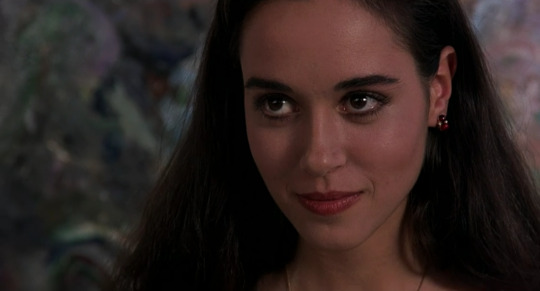
Brigitte Bako in the ‘Life Lessons’ segment of New York Stories (1989).
1 note
·
View note
Text
Who is the gayest PWHL Team?🌈
(Based on my extensive and unprofessional research of players' instagrams lol)
Minnesota: 3 confirmed
Michela Cava- dating teammate Emma Greco
Emma Greco- dating teammate Michela Cava
Liz Schepers- dating Ohio State teammate Michaela Boyle
Toronto: 7 confirmed
Brittany Howard
Carly Jackson
Allie Monroe
Jess Jones
Hannah Miller
Kristen Cambell- dating Team Canada softball player Emma Entzminger
Erica Howe
Ottawa: 7 confirmed
Brianne Jenner- (C) Married w/ 2 kids to Hayleigh Cudmore, her former teammate in Calgary
Emily Clark
Emerance Maschmeyer- married to Team Canada goalie Genevieve Lacasse
Ashton Bell
Malia Schneider
Zoe Boyd- either gay or really really really good at lesbian thirst traps and a queerbait of an instagram
Amanda Boulier
Boston: 7 confirmed
Hilary Knight- (C) dating speed skater Brittany Bowe (sorry Freddy Anderson)
Shiann Darkangelo- dating Montreal's Elaine Chuli
Jamie Lee Rattray
Samantha Isbell- exes with New York's Jill Saulnier
Taylor Wenczkowski
Amanda Pelkey- married to Finnish Olympian Venla Hovi
Erin Brown- dating New York's Savannah Norcross
New York: 9 confirmed
Micah Zandee-Hart (C)
Madison Packer- married to former teammate Anya Packer
Jade Downey-Landry
Jill Saulnier- exes with Boston's Sam Isbell
Chloe Aurard- dating basketball player Ella Bushee
Savannah Norcross- dating Boston's Erin Brown
Olivia Zafuto- dating former Boston Pride teammate McKenna Brand
Elizabeth Giguere- married
Johanna Fallman
Montreal: 9 confirmed
Marie-Philip Poulin- (C) engaged to teammate Laura Stacey
Laura Stacey- engaged to teammate Marie-Philip Poulin
Elaine Chuli- dating Boston's Shiann Darkangelo
Sarah Bujold
Erin Ambrose
Leah Lum
Mélodie Daoust- has a son with ex-wife, currently dating retired Team Canada player Hannah Bunton
Cath Dubois
Brigitte Laganiere
Notable mentions to 4/6 captains in this league being gay 🌈
(thank you @lesbianracecars for helping me in my extensive research)
#important research being done#including deep instagram dives#pwhl#pwhl minnesota#pwhl new york#pwhl toronto#pwhl ottawa#pwhl montreal#pwhl boston#women's hockey
1K notes
·
View notes
Text
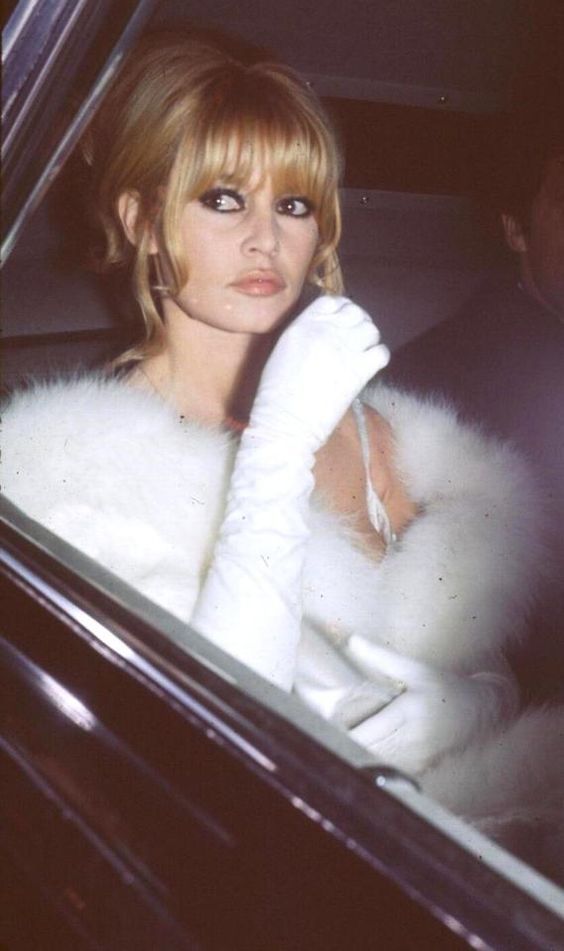
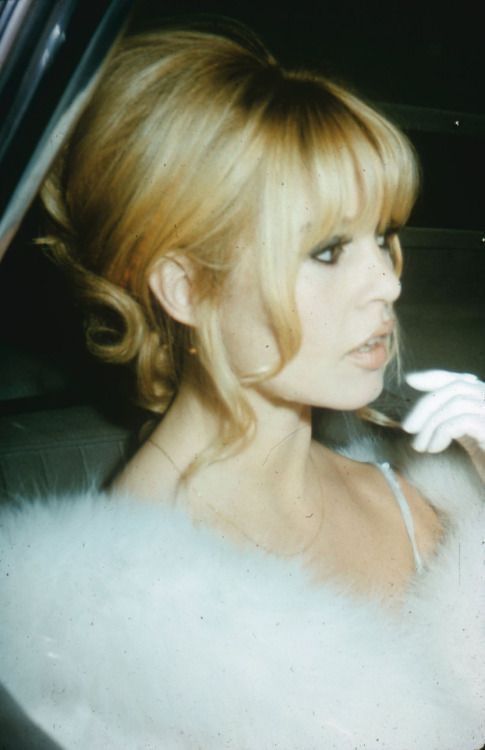
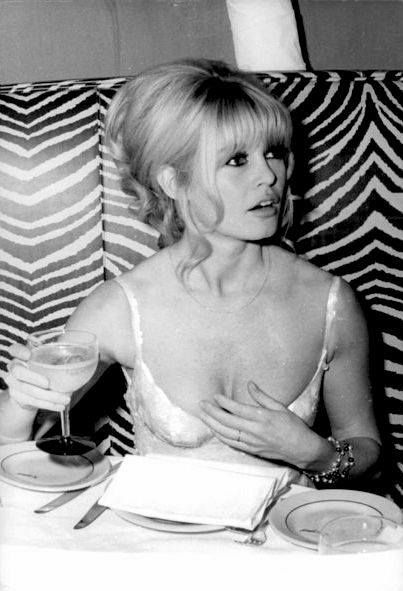
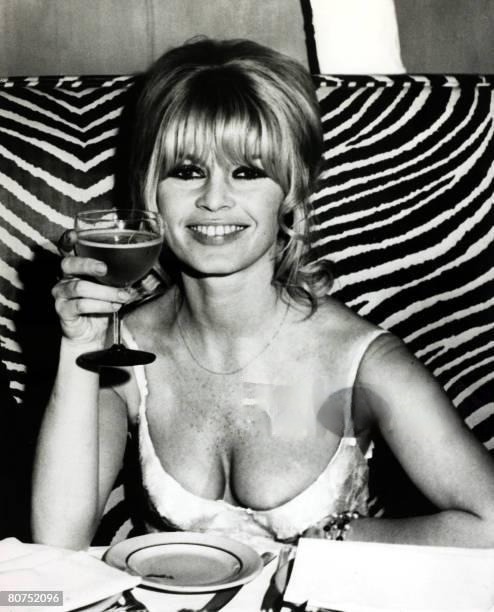
Brigitte Bardot at El Morocco nightclub, New York City, 18 December 1965. Unknown photographer
#brigette bardot#60s hair#hair styles#vintage#old hollywood#old hollywod glamour#photography#girlblogging#dollette#coquette#fashion#girly#aesthetic#people#1960s style#1960s fashion#1960s#girl blogger#lana del rey#girl interupted syndrome#im just a girl#female hysteria#this is a girlblog#coquette angel#just girly thoughts#french girl#girlhood#girlcore#hell is a teenage girl#nyc
372 notes
·
View notes
Text
1968 [Chapter 2: Hera, Goddess Of Childbirth]
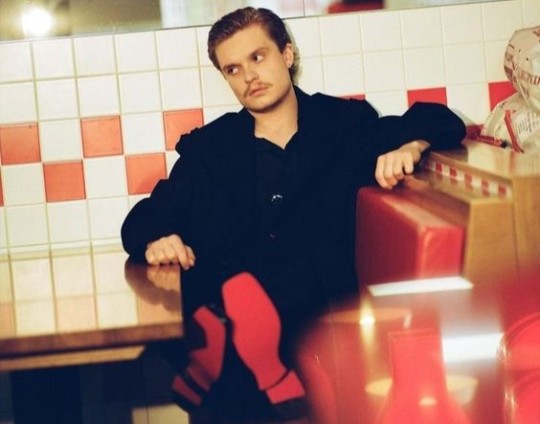
A/N: Enjoy Chapter 2 a little early! See you on Sunday for Chapter 3 🥰
Series Summary: Aemond is embroiled in a fierce battle to secure the Democratic Party nomination and defeat his archnemesis, Richard Nixon, in the presidential election. You are his wife of two years and wholeheartedly indoctrinated into the Targaryen political dynasty. But you have an archnemesis of your own: Aemond’s chronically delinquent brother Aegon.
Series Warnings: Language, sexual content (18+ readers only), violence, bodily injury, character deaths, New Jersey, age-gap relationships, drinking, smoking, drugs, pregnancy and childbirth, kids with weird Greek names, historical topics including war and discrimination, math.
Word Count: 5.4k
Tagging: @arcielee @huramuna @glasscandlegrenades @gemmagirlss1 @humanpurposes @mariahossain @marvelescvpe @darkenchantress @aemondssapphirebussy @haslysl @bearwithegg @beautifulsweetschaos @travelingmypassion @althea-tavalas @chucklefak @serving-targaryen-realness @chaoticallywriting @moonfllowerr @rafeism @burningcoffeetimetravel-fics @herfantasyworldd @mangosmootji
💜 All of my writing can be found HERE! 💜
You are buzzed at a private party in the Rainbow Room of Rockefeller Center, Midtown, February 1966, chandeliers and candlelight, pink and red hearts made of paper hanging from shimmering strings and littering the floor. Your roommate Barbara Nassau Astor—yes those Astors, Astor Avenue in the Bronx, Astoria in Queens, “the landlords of New York”—brought you along tonight, and the chance to be swept up into her glittering existence is precisely why your father sent you to a school like Manhattanville College of the Sacred Heart. Barb knows people who know people who know other people and every single individual in that grand design is wealthy and worldly and could possibly lead you into the generous arms of your future husband. You are from Tarpon Springs, Florida, heiress to a sea sponge fortune, and your father nurses powerful ambitions of intermingling his blood with the Northeastern elite.
You scan the selection as you sip your Pink Squirrel. You could marry a doctor and sit in the living room waiting for him to come home at 9 or 10 or 11 p.m., fix him a Whiskey Sour or a Sazerac, listen to him bemoan the complexities of nerves and veins before accompanying him to bed and repeating the whole process the next day. You could marry a lawyer or an advertising executive, and your fate would be much the same. Your own parents are partners in life and business, but you have seen enough to know how rare this is. These men of the Rainbow Room, 65 floors above icy streets radiant with headlights, want a wife whose hands will stay manicured and idle: nannies will tend to the children, maids will clean the house, mistresses will massage the knots out of the muscles of his back. And you—a relative upstart, new money among ancient bloodlines—will have no right to demand otherwise.
A man interrupts your reverie. He wants to know about the pendant you wear around your neck. You sigh before you turn to him; you resist the instinct to roll your eyes. And then you see him. Tall, blonde, blue-eyed, with a curious intensity and a teasing little smirk, an Old Fashioned in his grasp like molten gold. You don’t know it yet, but he is a senator from New Jersey, very recently elected, victorious yet still hungry. He steals the oxygen out of your lungs. He drowns you in the amber-musk warmth of his cologne.
“It’s Athena,” you say, touching your fingertips to the silver medallion self-consciously; and you are rarely self-conscious. The black polish has been scrubbed from your nails and replaced with a soft, shimmering champagne. You spent two hours this afternoon having your hair painfully teased and arranged into a Brigitte Bardot-inspired updo.
“Goddess of wisdom.”
“And war and peace. And math.”
“Math?” He is intrigued.
“That’s what I’m studying at school. Math.”
“And yet you are not disinterested in the humanities. You know Greek mythology.”
“Well, Tarpon Springs has a lot of Greeks, and that’s where I’m from, so.”
“Studies math. From Tarpon Springs, Florida. I’m learning everything about you.” He smiles, this magnetic stranger who has captured you like a moon lured into a planet’s gravity. He swallows a mouthful of his Old Fashioned, moisture glistening on his lips. “Do you like Greek food?”
You can’t seem to follow his words. Blood is rushing into your face, hot and dizzying. “What?”
“Greek food. Have you tried it? Hummus, tzatziki, gyros, spanakopita, horiatiki, baklava.”
“Oh yeah, I’ve had it. It’s great.”
“My family owns a house on Long Beach Island,” he says casually. “We eat a lot of Greek food there. You should join us for dinner sometime soon.”
“Really?”
“Yes. Very soon. Maybe this weekend. Are you free?”
No, you’re not; but you’ll cancel plans until you are. “Um, okay. Sure. And who…sorry, I might have missed it, but…who are you…?”
“Aemond Targaryen.” And he shakes your hand like you’re someone who matters. “I’m a senator. I’m trying to end the war.”
With him, you could be a part of something magnificent. With him, you could help save the world.
~~~~~~~~~~
Asteria is the goddess of falling stars, but the home of rising ones. On the north end of Long Beach Island, New Jersey—only 100 miles south of the sleek bladelike skyscrapers of Manhattan—lies the sprawling Targaryen estate. The nine-acre property features one main house and another three for guests, a swimming pool, a tennis court, a ten-car garage, a boathouse, a pier, and an ample stretch of beach that abuts the Atlantic Ocean, open water with nothing interrupting the infinite, miles-deep blue from the East Coast to the Iberian Peninsula. It is the first week of July, 1968, and your 23rd birthday. You are lazing in a lounge chair on the emerald green lawn and eating your third slice of melopita, a cheesecake-like dessert made with honey and ricotta. It originates from the Greek island of Sifnos.
“You two can’t murder each other while I’m gone,” Aemond says. He’s sitting between you and Aegon. His stitches have healed, the worst of his pain has subsided, his poll numbers have only improved since the assassination attempt. He has a glass eye that he can insert for public appearances, but he dislikes it; at home he wears a leather eyepatch that still unnerves the children. Tomorrow, Aemond is flying to Tacoma to campaign ahead of the Washington State Convention on the 13th. Most of the family will be joining him, with only three Targaryens remaining at Asteria: ailing Viserys, useless Aegon, and you, officially too pregnant to travel by plane. You are wearing a floral, flowing, two-piece swimsuit. The sun is blazing in a clear sky. The record player is piping out Time Of The Season by the Zombies.
Aegon waves a hand flippantly, then adjusts his preposterously large blue-tinted plastic sunglasses; he is shirtless, flabby, very sunburned. “I’ll barely be here.”
Aemond looks over at him, amused. “Oh yeah? And what pressing engagements do you have to attend to? I’d love to know.”
You take a bite of your melopita and scatter crumbs across the swell of your belly: seven and a half months along. “I’m sure the prostitutes miss him.”
“They do,” Aegon snaps. “I’m their favorite customer.”
“Well you’re a reprieve for them. It’s always over so quickly.”
Aemond is snickering. Aegon says to him: “23, huh? A 13-year age difference. She could almost be your daughter.”
“And 17 years younger than you. She could definitely be yours.”
“That’s how Aegon likes his girls,” you say. “Too inexperienced to recognize end-stage degeneracy. Still stumbling their way through Shakespeare for English class.”
“Why can’t she stay at the brownstone?” Aegon asks irritably. Aemond owns a historic townhouse in Georgetown for when Congress is in session, though he’s rarely been there since he announced that he was running for president.
“Because Doxie is here to make sure she’s taken care of,” Aemond replies. Eudoxia has been the head housekeeper of Asteria for decades, a formidable battleaxe of a woman who speaks very little English and has a seemingly endless supply of patterned scarves to wrap around her ink black dyed hair. There currently aren’t any permanent staff stationed at the brownstone, and Aemond does not trust strangers. “And because my future first lady is hosting a tea party on the 10th.”
“A tea party!” Aegon gasps, mocking you. “Surely that will patch the wounds of our troubled nation. She’s an inspiration. She’s motherfucking Gloria Steinem.”
“She’s Aphrodite,” Aemond says, beaming with pride, his remaining eye fixed on your belly. He’s lost one piece of himself, but in a month and a half he’ll gain another. “Goddess of love.”
“There must be a more appropriate mythological character. Medusa, perhaps. Lyssa was the goddess of rabies, Epiales was the goddess of nightmares.”
“Aegon, I had no idea you were so…” You search for the right word. “Literate.”
“Io was turned into a cow.” He grins at you, toothy, malicious.
“She’s also one of Jupiter’s moons,” Aemond muses. He draws invisible orbits in the air with his long, graceful fingers. “Beautiful, celestial, pristine…”
“A satellite,” Aegon says. “Mindless. Aimless. Going wherever she’s told.”
Aemond insists as he twists the bracelet around your right wrist, a delicate gold chain he bought during your honeymoon in Hawaii: “Aphrodite.”
“Didn’t she fuck around with, like, everyone?”
“Maybe you should be Aphrodite,” you tell Aegon.
Mimi appears, tottering across the lawn with the straps of her sundress sliding off her shoulders and her Gimlet sloshing precariously in its glass. The children are playing in the surf with the nannies and Fosco, who is entertaining them by diving for seashells and delivering his treasures into their tiny, grasping palms. Criston is supervising from the sand, though he steals frequent glimpses of Alicent as she feeds a wheelchair-bound Viserys—much diminished after a number of strokes—his own slice of melopita, one careful, patient spoonful at a time. “Can we…” Mimi bursts out laughing and almost falls over. She claws her way upright again using the back of Aegon’s chair. “Um…I was thinking…”
“What?” Aegon asks, annoyed, avoidant. If they’ve ever been happy, it was a transient epoch that came and went long before you joined the family. It was before the asteroid killed the dinosaurs.
“We should go back to Mykonos. We had such a nice time in Mykonos. Didn’t we? Didn’t we just adore Mykonos?”
Aegon sighs, glowering out over the ocean. “Yeah, we sure did. Ten years ago.”
“Exactly!” Mimi gushes, oblivious. “When can we go? Next week? Let’s go next week.”
“Mimi, you and the kids will be in Washington, remember?” Aemond says. Alicent will have to be her handler; usually it’s your job to make sure Mimi is ready for photos, eats enough to stay conscious, doesn’t trip over her own feet, doesn’t talk too much to the press.
“Washington?” Like she’s never heard of it.
“The state. Not the city. For the convention.”
“Oh right. Right.” She gulps her Gimlet. You could set your watch by Mimi’s drinking. Tipsy by lunch, drunk at dinner, crawling on the floor chasing the dogs around by 8 p.m. The Targaryens keep a drove of Alopekis, small and white and foxlike. “Well…maybe some other time.”
“After the election,” Aemond says with an abiding, encouraging smile. He tolerates Mimi because he needs her: happy wholesome family, American Dream. Down at the water’s edge, the nannies are giving towels to Fosco and the children as they scamper out of the frothing waves, Mimi’s five and Helaena’s three: Daphne, Neaera—no one can ever seem to spell her name correctly, least of all the six-year-old girl herself—and Evangelos.
Mimi departs, on the hunt for a fresh Gimlet. Aegon reaches into the pocket of his swim trunks—Hawaiian print, royal blue—and pulls out a joint and a Zippo. He sticks the joint between his teeth and goes to light it.
“No,” Aemond says immediately, yanking the joint out of Aegon’s mouth and stomping it into the earth. Then he points down the beach towards the sand dunes. “You know journalists will sneak around trying to get photos. You know we’re never truly alone out here.”
“They can’t tell what I’m smoking!”
“Don’t argue with me.”
“You know there are teenagers getting their limbs blown off in Vietnam right now? I think society has bigger problems than me smoking grass.”
“And yet to solve those bigger problems, I have to win in November. And the suburban housewives will not vote for me if they think I support legalizing marijuana. Trust me, I know. I’ve met them.”
“I wouldn’t want those people’s votes,” Aegon says derisively.
“You’d rather Nixon get them?”
Aegon doesn’t have a speedy rebuttal this time. He contemplates the Atlantic Ocean, the wind tearing at his hair.
“It’s hot as hell,” Aemond says to you, gathering up the newspapers he’s been leafing through, never not thinking about the election, never not strategizing. “Come on. Let’s go inside.”
As you accompany Aemond towards the main house—and of course you follow him, always, anywhere—Alicent waves you over to where she and Viserys are sitting to wish you a happy birthday again. From this vantage point, you can just barely spot Otto and Helaena strolling through her garden, a jungle of butterfly bushes and herbs. The stricken Targaryen patriarch beams at the swell of your belly. Viserys likes you, you are his favorite daughter-in-law, though perhaps this is not so lofty an achievement. Moreover, he likes that you are carrying the child of his decent son. Aemond has already decided on the baby’s name: Aristos Apollo. If it is in fact a boy, you suppose you’ll call him Ari, but he doesn’t feel real to you yet. He belongs to Aemond, to the Targaryens, to the nation, but not quite to you. He is more myth than flesh.
“Nothing is more precious than children,” Viserys tells Aemond, raspy and frail. “I would have had at least five more if I could.” Alicent bows her head, an acknowledgement of her failure in this regard. Viserys expects it. You and Aemond politely avert your gazes.
“Thank God for this baby,” Alicent says. “After the year we’ve had? That the whole world has had? We all need something to be grateful for.”
“Yes,” Aemond agrees, smiling. It must be the promise of a son that has made his maiming go down smoother, and maybe it is his soaring poll numbers too, and maybe it is gratitude that he escaped with his life, and maybe it is even the fact that he has you.
But long after dusk when you’re getting ready for bed—slathering yourself in Jergens, stepping into your chiffon nightgown—as you pass through the sliver of light pouring out of the bathroom, you catch a glimpse of something that stops you. Aemond is standing in front of the mirror with his hands on the rim of the sink, his eyepatch slung over the towel rack, his voided eye socket exposed and gory and irreparably wounded. There’s something in his scarred face that you can’t recall ever seeing before. There is a seething, secret, animal rage. There is fury for everyone who has ever denied him anything.
You remember who you were before you met Aemond at the Rainbow Room in Manhattan at a party you were almost not illustrious enough to attend. You wore your hair long and loose, you downed shots, you smoked, you swore, you slept through class almost every Monday; and then you packed all of this away in your allegorical attic and became someone who could stand beside a senator, and then a candidate, and then a president, someone who could tip the scales of fate.
And you think as you lurk unnoticed in the doorway: Maybe he’s been hiding parts of himself too.
~~~~~~~~~~
July 10th, 10 a.m. He’s snoring on a couch in the living room, the one patterned with sailboats. He’s hugging his acoustic guitar like a child clinging to a teddy bear. Sometimes he plays it for the kids: Get Rhythm, Twist And Shout, Stand By Me, You Can’t Hurry Love. That’s about the extent of his involvement in their lives. He has a law degree from Columbia that his father bought for him. Aside from a brief and disastrous stint as the mayor of Trenton, he has never been gainfully employed. You pour the cupful of ice cubes you collected from the freezer all over his bare chest.
“What the fuck!” Aegon screams as he startles awake. “What is wrong with you?!”
“The guests are arriving in two hours. And you’re going to help me host.”
“I’m not slobbering at the feet of those manicured elitists.”
“It’s easy to say ‘vive la révolution’ from your family’s mansion that you reside in as a professional failure.”
“Yeah, you’re right, I’m so worthless. If only I spent more time hosting tea parties.”
“I can’t small talk with governors and congressmen, so I have to charm their wives instead. That’s how it works, you idiot.”
Aegon rolls off the couch and rubs his forehead, wincing, hungover. In the dining room, Eudoxia is readying cups and plates, polishing silverware, folding napkins. The caterers will be here soon, and there are also three dishes that you made yourself: stafidopsomo, a bread with raisins and cinnamon; rizogalo, Greek-style rice pudding; and baklava you spent hours chopping walnuts for. At least one show of domestic prowess is an expectation, two is impressive, three is above and beyond, something for the other political wives to chatter about. You know the importance of making a good impression on them. They are as much a part of their husbands’ careers as the speech writers, communication directors, fundraisers. “I need a Bloody Mary,” Aegon groans.
“You need to pull your goddamn weight. Everyone else is working to get Aemond elected. Your five-year-old kid is out on the campaign trail and you can’t walk around with a tray of hummus and mini spanakopitas? Are you serious?”
“I’m dead serious,” he says, standing with some difficulty and then shoving by you. “Fuck off, Miss America.”
“Aegon!”
But he’s padding off towards the kitchen with his bare feet, tiki print boxer shorts, bedraggled hair. You follow after him in your spotless white heels and sundress patterned with common blue violets. Your earrings are pearls. You’ve wrangled your hair into a tidy French twist. Aegon is getting a pitcher of tomato juice out of the refrigerator, a bottle of vodka from a cardboard Apple Jacks box. He keeps booze and pills hidden everywhere; you’re always stumbling across his caches.
You open your mouth to unleash something hurtful, something hateful, but then you feel the cold flare of liquid on your thighs as the ocean breeze gusts in through the windows. My dress, you think, alarmed. What did I spill on it? One of the ice cubes you threw at Aegon must have caught on the skirt somehow and melted. That’s your first guess, and it is welcome; water doesn’t stain, and you aren’t sure if you have another outfit that is both formal enough and will still fit you. But when you reach down to touch your leg—now the liquid reaches your knees—your hand comes away red.
You look up at Aegon. He’s staring back at you, thunderstruck, horrified. His Bloody Mary ingredients are now forgotten on the countertop. He shouts for the housekeeper: “Doxie?!”
There is indistinct, cantankerous Greek grumbling in return.
“Doxie! Call an ambulance!”
“I don’t understand,” you say to Aegon, bright clotless blood dyeing the whirls of your fingerprints. I ruined my dress, you think nonsensically. “It doesn’t hurt. Shouldn’t it hurt?”
“Don’t move, don’t do anything, just wait for the paramedics.”
But the edges of your vision are going dark and hazy, and the room spins like a flipped coin. Your knees and ankles fold, bones turned to paper. As you drop, Aegon dives for you. You clutch at him, but there’s nothing to grab onto, no suit jacket, no tie, only skin that glows with sunburn. “If I don’t wake up, tell Aemond—”
“You’re not dying, bitch. My luck’s not that good.”
But his eyes are panicked; and they are the last thing you see before you black out.
~~~~~~~~~~
Arteries of cement, bones like lead, heavy eyelids opening to reveal strange white walls.
Am I dead?
But no: you hurt all over. Heaven isn’t supposed to hurt. There are needles pierced through the backs of your hands, a splitting rawness in your throat.
Was I intubated? Did I have surgery…?
You try to sit up. The pain is blinding; the severed and sutured latticework of your abdominal muscles is a pit of glass. You gasp, moan plaintively, fumble for the nurse call button on the wooden nightstand.
“Will you stop moving?” Aegon says as he walks into the room. He’s slurping on a straw that pokes out from a Dairy Queen cup. The fluid inside is clumpy and red. Instantly, you think of blood, and a wave of nausea punches through the shredded gore that was once your belly. Aegon flops down into the salmon pink armchair beside the bed and props his combat boots up on the ottoman. “They sliced you up like the Black Dahlia. You’re gonna rip your stitches.”
“They did a c-section…?”
“Yeah, you had some kind of uterus…thing. I don’t remember.”
The baby?? Is the baby alright?? “An abruption?”
More slurping. “No…I think it started with a P.”
“Previa?”
“Yeah, that one.”
You remember waking up a few times: on the kitchen floor as men were lifting you, in an ambulance as the siren shrieked. Someone said you were being taken to Mount Sinai in Manhattan. And that makes sense, that would have been Criston’s plan. Mount Sinai is one of the best hospitals in the country. You look around the room for a bassinet or a crib. Instead you see a wheelchair and a myriad of flower bouquets; word has already gotten out, and so the customary well wishes are pouring in. Lady Bird Johnson sent bluebonnets, the state flower of Texas; Abigail McCarthy sent lilies of the valley; Muriel Humphrey sent roses, traditional, safe, uninspiring; Pat Nixon sent blood orange gladioli. Mrs. Wallace, newly deceased, neglected to call a florist. “Where’s the baby?”
“He’s fine. He’s downstairs in an incubator.”
Ari, you think, though he still doesn’t seem real yet. “What…?”
“His lungs are underdeveloped. But the doctors think he’ll be alright. You want a Mr. Misty? There’s a Dairy Queen like two blocks from here.”
“No, I don’t want a Mr. Misty,” you say, incredulous. “I want to see the baby.”
“Well they can’t move him and they can’t move you, so you’ll have to wait.”
“I’m going to see him—” You swing your feet off the bed and feel daggers, fire, a splintering like someone has taken a hammer to your bones. You almost scream; it takes everything in you to choke it down and only gasp as your flesh becomes an inferno. I want a joint, you think randomly, an urge you’d believed you had exorcised from yourself, an archaic relic of a past life.
“Told you,” Aegon says smugly.
You lie panting, helpless, glancing at the phone on the nightstand. “Aemond knows?”
“Oh yeah, I’ve called everyone. He knows.”
“Good. So he’ll be here soon.”
“Sure,” Aegon says, perhaps a tad noncommittally.
“Okay.” You’re still trying to catch your breath. Tacoma is a six hour flight away. Even if Aemond doesn’t leave until morning, he’ll be here by sundown tomorrow. “You can go now.”
“Go?!” Aegon exclaims, then laughs, one of his reckless, taunting cackles. “Oh no. I’m not going anywhere.”
“You definitely are.”
“No, I’m not,” he insists, grinning. “For once in my life, I’m the person who’s exactly where he’s supposed to be. I’m the honorable one. The sacred heir of the favorite son has just been born, and the blessed mother has been sawed in half like Saint Simon the Zealot, and where is Aemond? Where is literally everyone else? Across the continent shaking hands and forcing smiles to win him the great state of Washington. I’m not going home. I’m collecting every second I spend here like coins from a slot machine. I won the jackpot, babe. No one is ever going to be able to call me the family fuckup after this.”
The pain is horrible, insurmountable; you can’t think through it. You close your eyes and try not to sob, to wail, to split yourself open in body and soul. I can’t let him see me break down.
“What’s up?” Aegon asks. “What’s wrong with you?”
“I want a Mr. Misty. Go get me a Mr. Misty.”
“Okay,” Aegon says doubtfully. “What flavor?”
“I don’t care. Not red.”
“They have orange, lemon-lime, grape—”
“Just pick one!” you shout, tears brimming in your eyes. Get out, get out, get out.
“Calm down, psycho!” he yells back, heading for the door.
As soon as he crosses the threshold, you snatch the call button off the nightstand and press it frantically until a nurse arrives. You get more morphine and sink into a stillness like deep water, down, down, down.
~~~~~~~~~~
It’s dark outside, stars and a crescent moon. On the television is grainy footage from the Battle of Khe Sanh. American soldiers younger than you are dragging their wounded brethren to a Chinook helicopter for evacuation: bandages, burns, missing limbs and faces. Aegon had dozed off in his chair—assisted by an ample amount of Vicodin, surely—but is stirring awake now. He blinks groggily at the screen.
“It’s so fucking awful,” you say, and Aegon’s eyebrows shoot up; it’s the first time you’ve ever sworn in front of him. You trained yourself to stop when you met Aemond. “30,000 Americans dead, God knows how many Vietnamese peasants, Buddhist monks setting themselves on fire, and for what? So we can say we did everything we could to stop communism? So we can humiliate the Russians? There is no liberation of Vietnam. All we’re doing is making those people hate us. And we’re destroying ourselves too.”
“I didn’t know you cared about the war.”
You look at him, mystified. “Everything I do is about the war.”
“But you never really talk about it.” Aegon yawns and stretches, reaching up towards the ceiling. “You talk about Chanel dresses and tea parties.”
“Well yeah, because it’s…it’s unseemly, I guess. For me to speak on the war. Me specifically.”
He snorts. “Because you’re a woman? Who told you that? Aemond?”
You hesitate, watching the television again. Now there are napalm bombs incinerating villages and rice paddies. “I had a boyfriend before Aemond, you know.”
“What, in kindergarten? Chasing each other around the playground? Illicit snuggles beneath the slide?”
You chuckle, shaking your head. “A real boyfriend.”
“No way. You did not.”
“I did,” you insist, smiling a little. “We met at a party my freshman year of college. He was at NYU studying…oh, I always forgot, that was one of our jokes. It was either archaeology or anthropology. I actually thought I was going to marry him for a minute there.”
“Scandalous.” Aegon is gazing at you with his murky blue eyes, grinning, playful. “What happened?”
“He had a moral crisis about poor kids getting shipped off to Vietnam to be slaughtered while he was tucked safely away in his ivory tower. So he enlisted, and honestly it was shocking how quickly I started to forget about him. We exchanged a few letters, it didn’t last long, I think he was forgetting about me too. But he ended up getting killed in action in October, 1965. His old roommate told me.”
Now Aegon is thoughtful. His crooked grin dies. “I’m sorry.”
“It’s his parents I feel bad for. He was an only child. I heard his father drank himself to death.”
“You’ve been carrying a story like that around with you and you never used it? Not in an interview or an article, not at one of your asinine little tea parties?”
“I can’t,” you confess. “Aemond doesn’t want me to. He doesn’t like to be reminded about…you know. That there was someone else before.”
Aegon throws his head back and cackles, combing his fingers through his disheveled blonde hair. “As if Aemond was a virgin when you met him.”
But it’s not the same. It isn’t to Aemond, and it wouldn’t be to the rest of the world either. It is your eternal disgrace. It is something you will be expected to atone for until you’re in the grave. “Give me a joint.”
Aegon is amazed. “What?”
“I know you have some, you always do. I want one. Give it to me.”
“You smoke grass?”
“I used to. Then I gave it up. But I’m making an exception.”
He gawks at you for a while, then slips a joint out of one of the front pockets of his green army jacket. He places it between his lips, lights it with his little chrome Zippo, and inhales deep and slow. Then he offers it to you.
“I don’t want herpes.”
Aegon laughs. “I don’t have herpes. I swear.”
“Not yet, maybe. Give it time.”
“Are you gonna smoke or not?”
You take the joint and fill your lungs with earth, floral notes, a tinge of spice. It’s been years, but it comes rushing back in an instant as the high hits your bloodstream: calm quiet weightlessness, a sense of wellbeing that fills the honeycomb hollows of your bones. “I need to see the baby.”
Aegon stalls. “The doctors were really insistent that you stay here.”
“And all the sudden you care about rules.”
He considers this, drumming his palms on his thighs. His jeans are ripped; he’s biting his lower lip. Then abruptly, he stands. “Alright.” He grabs the wheelchair and pushes it up against the bed. “Let’s go.”
You take another drag and then discard the joint in your empty Dairy Queen cup. You throw off your blanket and try to touch your bare feet to the cool linoleum floor. It hurts, it feels like razor blades, but you keep going. Then you remember you still have one IV in the back of your left hand. “Wait, how am I going to…?”
“You’re in luck. I am well-versed in needles.” Aegon holds out a palm. Nervously, you give him your hand. He peels off the medical tape, takes a moment to examine the vein, then slides out the needle so smoothly you don’t feel it at all; it barely even bleeds. He balls up a Kleenex from the box on your nightstand and secures it to the wound with the same strip of tape. “You’re welcome.”
“Junkie.” You try to lower yourself into the wheelchair and a yelp rips from your throat.
“Oh, this is pathetic,” Aegon says, but not quite unkindly. “Here.” He leans down in front of you. Too desperate to be prideful, you link your arms around the back of his neck. Aegon’s shaggy blonde hair tickles your cheek; his hands skim gingerly to settle on your waist, steadying you without too much pressure. He helps you into the wheelchair, where you collapse gasping and sweating bullets.
“If you ever mention this again, I will guillotine you.”
He winks. “Relax, little Io. I never kiss and tell.”
“I’d assume you’re usually too plastered to remember the details.”
“Be nice. I could roll you down a staircase.” But he doesn’t; he rolls you into the hallway instead.
The lights in the corridor are dim for night, for dreams. You see a few nurses shuttling in and out of other rooms from a distance, but none seem to notice you and Aegon. He steers the wheelchair into the elevator and you ride it down two floors, then cross another hallway and pass through a set of doors. There must be a dozen incubators, half of them occupied. The nurse on duty—currently cradling a tiny infant in her arms, a girl judging by the pink hat, and feeding her from a bottle of formula—gapes at you.
“Ma’am? You aren’t supposed to be—”
“Shut up,” Aegon tells her, and the nurse doesn’t say another word.
Aegon pushes the wheelchair down the line of incubators until you reach the one with a name card labelled Targaryen, Aristos Apollo. And there he is: unmistakably fragile, impossibly small, blue veins like a roadmap beneath translucent skin, tangled in tubes and wires. In his sleeping face you don’t see Aemond or even yourself, but rather an inexplicable familiarity. You feel like you’ve met him before. You feel like you’ve known him all your life.
You press your hand to the clear, domed wall of the incubator; shadows in the shape of your outstretched fingers fall over Ari’s face. “He’s real.”
“Of course he is.” Aegon is watching you; you can see him on the periphery of your vision, a blur of blonde hair and high cheekbones. When you turn to him, he immediately looks away.
“What?” you ask.
“Nothing.” But his voice is distracted, bewildered, like someone fumbling for a light switch in a dark room.
#aegon ii targaryen#aegon targaryen ii#aegon ii#aegon targaryen x reader#aegon x reader#aegon targaryen#aegon ii x y/n#aegon ii targaryen x reader#aegon ii x you#aegon ii x reader#aegon ii fanfic#aegon targaryen x you#aegon targaryen ii x you
244 notes
·
View notes
Text


















Philippe Halsman's Jump Book
Compléments de documents Yvonne Halsman, Postface Owen Edwards
Éditions de La Martinière, Paris 2015, 96 pages, 194 ill, ISBN 989-2-7324-7506-6
euro 50,00
email if you want to buy [email protected]
C’est en photographiant la famille Ford que Philippe Halsman a eu cette idée un peu folle : faire sauter Mme Ford devant l’objectif. Ainsi naît le concept de « jumpology ». Cet album présente des portraits hauts en couleurs (bien qu’en N&B), originaux, dynamiques, drôles et vrais. De Riga en Lettonie à New York, en passant par Paris, Philippe Halsman est devenu le plus grand portraitiste de son époque : Chagall, Le Corbusier, Gide, Malraux et d’autres artistes et intellectuels tombent tous sous la coupe de son appareil. Dès 1940, Halsman fuit l’Occupation et émigre aux États-Unis où il se reforgera une notoriété aux côtés de Picasso, Marilyn Monroe, Ingrid Bergman, Winston Churchill, Audrey Hepburn, Salvador Dalí ou encore Alfred Hitchcock. La photographie d’Halsman se caractérise par son approche directe et psychologique, ainsi que par une recherche formelle dans le détail, affectionnant les expérimentations techniques et esthétiques. Il réalise 101 couvertures du magazine Life et publie, en 1959, son manifeste de la « jumpology » : Jump Book.
Le quasi 200 fotografie realizzate da Halsman a metà degli anni 50 che ritraggono stelle del cinema, regnanti, politici, attori, artisti e studiosi a mezz’aria sono ormai entrate a far parte nell’immaginario collettivo della cifra stilistica di Halsman. In quel periodo l’artista concludeva le sessioni fotografiche chiedendo ai suoi soggetti di saltare e così iniziò a prendere forma questa straordinaria ed energetica raccolta che tra gli altri annovera Marilyn Monroe, Edward Steichen, Audrey Hepburn, Robert Oppenheimer, John Steinbeck, Weegee, Aldous Huxley, Marc Chagall, Salvador Dalì, Brigitte Bardot, Groucho Marx, Richard Nixon e il Duca e la Duchessa di Windsor. "Quando si chiede una persona di saltare", ha scritto Halsman, "la sua attenzione è principalmente rivolta verso l'atto di saltare, e la maschera cade, facendo apparire così la persona reale."
25/10/24
#Philip Halsman#Jump Book#Marilyn Monroe#Steichen#Audrey hepburn#Chagall#Dalì#Hitchcock#Picasso#Ingrid Bergman#Churchill#Weegee#Groucho Marx#Brigitte Bardot#Peter Ustinov#Gina Lollobrigida#Duchi di Windsor#fashion books#photography books#fashionbooksmilano
38 notes
·
View notes
Text
Undrafted / unsigned players as of right now
With the SDHL / AuroraLiiga / Postfinance Women’s League / EWHL / other leagues either underway or soon to be underway, a lot of rosters are close to solidified with only a few spots left.
A lot of PWHL teams have made clear that they plan to not sign any / very few remaining free agents or draft picks until after training camp where they plan to have everyone remaining compete for spots. Obviously signed players and drafted players will be there, but who else? This is meant to give some light to that
This list does not include NCAA / USports players who went undrafted, mostly just due to lack of time. But feel free to add anyone notable!
Current list of rumored undrafted training camp invites.
Please note that this is not from PWHL teams officially and may not include all players invited / some may still be responding to offers
Boston Fleet -Jillian Dempsey, Klara Peslarova, Cami Kronish, Maude Poulin Labelle, Kelly-Ann Nadeau
Minnesota Frost - Claire Butorac, Brook Bryant, Lauren Bench, Charlotte Akervik
Montreal Victoire- Clair DeGeorge, Sandra Abstreiter, Gabrielle David, Alexandra Labelle,
New York Sound - Chayla Edwards, Madison Bizal, Taylor Baker, Savannah Norcross
Ottawa Charge - Taylor House
Toronto Sceptres - Rylind MacKinnon, Jessica Kondas, Lauriane Rougeau
Players on PWHL teams last year currently not affiliated with any teams / camp invites
Players with * is who I feel have the best spot at camp invites
Lindsey post
Brooke Hobson
Carley Olivier
Jade downie-landry *
Élizabeth Giguere *
Paetyn Levis *
Jill saulnier *
Alexa Gruschow
Madison packer *
Kayla Vespa
Mellissa channell *
Nikki nightengale
Abby cook
Kelly babstock
Kaleigh Fratkin *
Gigi Marvin *
Amanda pelkey *
Samantha isbell
Brooke Bryant
Sydney Brodt *
Brigitte Laganière
Ann-Sophie Bettez *
Sarah bujold *
Leah lum
Sarah Lefort. *
Brooke Stacey
Alex poznikoff
Marlène Boissonnault
Rachel mcquigge *
Samantha ridgewell *
Emma buckles
Victoria Howran
Taylor Davison
Lauren MacInnis
Samantha Davis
Rosalie Demers
Audrey-Ann Veillette *
Sam Cogan
Kaitlin willoughby
Jess jones
Fanni Garát-Gasparics *
Notable players who played in other leagues last year who are currently not affiliated with any team
Please note, I’m not saying all of these players will be PWHL invites, but as all leagues look to fill remaining spots these are names that may be on their call list. I put an * on players I think could have a shot at a camp invite for the PWHL based on a few factors including if they declared for the draft
Nicola Eisenschmid *
Laura kluge *
Shae Demale *
Tatum Amy
Emma Murén
Sarah-Ève Coutu-Godbout
Ally Johnson
Iveta Klimášová
Emily pinto
Autumn Macdougall
Sally Hoerr
Anna Purschke
Sara Krauseneck
Eleri McKay *
tanner Gates *
Yoshino Enomoto
Christine Deaudelin
Aoi Shiga
Lilla Carpenter-Boesch
Anna Kilponen
Anniina Kaitala
Ella Välikangas
30 notes
·
View notes
Text

#cameron diaz#leonardo dicaprio#gangs of new york#film#martin scorsese#brigitte lacombe#vanity fair#b&w
6 notes
·
View notes
Text

Catherine Fabienne Dorléac (born 22 October 1943), known professionally as Catherine Deneuve, is a French actress. She is considered one of the greatest European actresses on film. In 2020, The New York Times ranked her as one of the greatest actors of the 21st century.
Deneuve made her screen debut in 1957 at age 13, in a film shot the previous year when she was only 12. A major figure of the New Wave, she became, like Brigitte Bardot and Alain Delon, one of the best-known French artists in the world. In a career spanning nearly 70 years, she has played more than a hundred roles and is recognized in France and internationally for being one of the key faces of the musical film genre with appearances in The Umbrellas of Cherbourg, The Young Girls of Rochefort, Donkey Skin, 8 Women and The Beloved. Early in her career, she gained acclaim for her portrayals of aloof and mysterious beauties while working for well-known directors such as Luis Buñuel, François Truffaut, Jacques Demy, Roman Polanski, and Agnès Varda. She played in films attracting a total of nearly 99 million spectators in theaters, making her the working actress with the most admissions in France. In 1985, she succeeded Mireille Mathieu as the official face of Marianne, France's national symbol of liberty.
She has received numerous accolades over her career including two César Awards and the Venice Film Festival's Volpi Cup for Best Actress as well as nominations for an Academy Award and BAFTA Award. She has received honorary awards, including the Berlin International Film Festival's Golden Bear in 1998, the Cannes Film Festival's Honorary Palme d'Or in 2005, and the Venice Film Festival's Golden Lion in 2022.
In 1986, Deneuve introduced her own perfume, Deneuve. She is also a designer of glasses, shoes, jewelry and greeting cards. In 2005, she launched a limited-edition makeup collection for MAC Cosmetics. For the Catherine Deneuve eyewear line, she has had licensing agreements with Viva International (from 1989) and Marcolin (2014–2019) for the design, production and distribution of sunglasses and optical frames.
Daily inspiration. Discover more photos at Just for Books…?
14 notes
·
View notes
Text
“Did you bring the Heine souvenirs with you?”: Rudolf’s last Christmas present for his mother
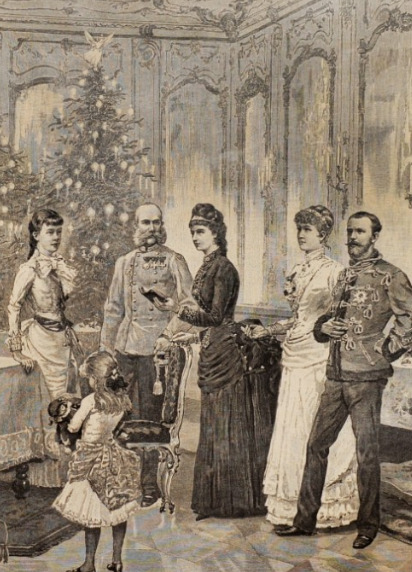
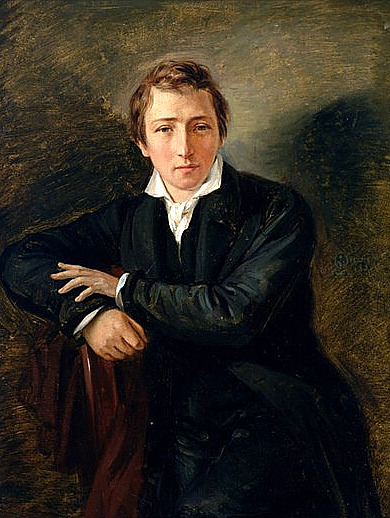
As Christmas approached, I started to search for Habsburg stories related to this holiday to share with you, and almost inevitably I once again looked into Crown Prince Rudolf’s last Christmas. The Christmas Eve of 1888 is known mostly for having been full of ominous signs of Rudolf’s deteriorating mental health that his family either was unable to notice or simply chose to ignore. I have a second post coming up related to that, but in this post I’m covering a different topic: the last present Rudolf gave to his mother, Empress Elisabeth.
December 24 was a special day for the Imperial family not only because it was Christmas Eve, but also because it was Elisabeth’s birthday. It was, then, a double celebration for the family. And on the 24th of December of 1888 the Crown Prince surprised his mother with a very special gift: a bundle of letters written by her favorite author, the poet Heinrich Heine.
Elisabeth’s deep admiration for Heine was well known: months earlier she had publicly supported and financially collaborated in the creation of a monument in honor of Heine in Düsseldorf, the poet’s hometown. The project, however, had a huge backlash by the anti-semites and German nationalists (Heine was Jewish), and soon Elisabeth was attacked by them. The campaign against Heine’s devotees in the press was so strong that eventually Elisabeth was forced to withdraw her support; the monument, rejected from city to city in Germany, finally was placed in New York, where it still stands (Hamann, 1978, 1986).
Rudolf, who had long been a supporter of Jewish rights, was probably happy to find that his mother shared his sentiments regarding the growing anti-semitism of the late 19th century. It was likely the fiasco of the monument that prompted Rudolf to get the Empress a Heine-related birthday and Christmas gift. For this task he asked his friend, journalist Moritz Szeps, to travel to Paris and acquire for him a bundle of letters that Heine wrote to his friend Alexander Weill. We can find a mention of it in this undated letter Rudolf wrote to Szeps, likely from the first days of December (translation by DeepL, nuances may be lost):
Dear Szeps! I am glad to know you are here; I would like to thank Frischauer [another journalist friend of Rudolf and Szeps] very much for his letter yesterday and its enclosures. Did you bring the Heine souvenirs with you? I hope to see you in the next few days. With best regards Your Rudolf (Szeps, 1922, p. 168)
And again, on December 11:
Dear Szeps! Thank you very much for your letter. Please have Heine’s letters photographed and only then send them to me. I hope to be able to see you the day after tomorrow. With warmest regards Your Rudolf (ibid)
In 1908, writing in the December 25 edition of the Neue Freie Press, Hugo Wittmann claimed that Weill, instead of money, had demanded “nothing more for his treasure than that the Crown Prince asked him for it in writing and send him a photographic copy of the papers upon receipt” (DeepL translation) which would explain why Rudolf asked Moritz to first photograph the letters before sending them to him. Historian Brigitte Hamann, however, claims differently: according to her the Crown Prince in fact paid an exorbitant amount of money for the letters. Whatever the case, when the Imperial family opened their presents at 4 o’clock in the afternoon of Christmas Eve, Elisabeth found a packet full of letters of her favorite poet.
This was, no doubt, a touching personal present that shows how much Rudolf cared for his mother. But what did Elisabeth think of this gift? As always, Hamann’s The Reluctant Empress is very straightforward:
In order to prove that he revered his mother, Rudolf paid an outrageous price in Paris for eleven Heine autographs and placed them under the Christmas tree for the Empress. Elisabeth, however, was so preoccupied with her daughter's engagement that she did not pay Rudolf’s gift the attention he had expected. (1986, p. 339)
Reading this, I’ve always felt sorry for Rudolf: he clearly put a lot of thought into finding the perfect present for his mother, only for it to go unnoticed. At least, that’s what I believed until I read Hamann’s previous work, her biography of the Crown Prince published first in 1978:
Whether the Empress appreciated the shy homage of her son, whether she felt how much he practically vied for her understanding, since both of them were attacked by the same people, is highly unlikely. According to all sources, Elisabeth at this time was totally occupied with Valerie, her “only one,” with her engagement and the impending pain of parting with her favorite child. (2017)
“Highly unlikely”. No source backing this up. It was then when I realized that Elisabeth disregarding her son’s present was pure speculation on Hamann’s part. Between her biography of Rudolf and her biography of Elisabeth she seems to have convinced herself that the empress didn’t care for the letters at all, and “unlikely” became just “she did not pay attention”.
I won’t be too harsh on Hamann: I also think Elisabeth’s main concern that Christmas was Valerie’s engagement. According to Valerie’s diary, both her parents were very moved that day because she was going to get engaged in the evening. But that doesn’t have to mean that Elisabeth didn’t care for Heine’s letters. We just don’t know what Elisabeth thought of the gift, since (as far as I could find) none of the people that were present during the unwrapping of the gifts wrote down her reaction. Valerie only wrote in her diary that “Little Elisabeth [Rudolf’s daughter] was very happy about the presents and played with her things while we dined in the Alexandrian room on the left” (1998, p. 164). And the next time Rudolf wrote to Szeps, on December 27, the only allusion to the past Christmas Eve he made was thanking him for his “congratulations on the happy family event” (1922, p. 168) i.e. the engagement of his sister. No mention of Heine by anyone, anywhere.
We do also have, however, an interesting account of the opening of the presents in Egon Corti’s 1934 biography of Empress Elisabeth:
And so Christmas Eve, 1888, came round, and with it Elizabeth’s birthday. Rudolf and his wife were among the guests, and the Crown Prince presented his mother with Hugo Wittmann’s edition of Heine’s letters, at which Francis Joseph cast an ironical glance but made no comment. (p. 386)
No mention of Elisabeth’s reaction to the letters, but he does give us Franz Josef’s. Sadly Corti does not give a source for this account, which opens a new mystery: from where did he learn this? There is a mistake in the quoted fragment: the letters Rudolf acquired were original, written by Heine himself; Hugo Wittmann only published them in the aforementioned Neue Freie Press edition of 1908. But I wouldn’t straight up disregard this account either: not only Corti had access to now lost primary sources, he also worked closely with Valerie’s children. Who knows, maybe this was a family anecdote he learned from them.
So, did Elisabeth ignore her son’s thoughtful gift because all she cared about was Valerie’s engagement? We can’t know for certain. I think it is safe to assume Valerie was her main priority that day, but unless a primary source that explicitly states that she did not care for the letters appears, I don’t think it’s right (nor fair) to claim that she was indifferent to Rudolf’s present.
Sources:
Corti, Egon Caesar Conte (1936). Elizabeth, empress of Austria (translation by Catherine Alison Phillips)
Hamann, Brigitte (2017). Rudolf. Crown Prince and Rebel (translation by Edith Borchardt)
Hamann, Brigitte (1986). The Reluctant Empress: A Biography of Empress Elisabeth of Austria (translation by Ruth Hein)
Schad, Martha and Schad, Horst [ed.] (1998). Das Tagebuch der Lieblings Tochter von Kaiserin Elisabeth. 1878-1899
Szeps, Julius [ed.] (1922). Kronprinz Rudolf. Politische Briefe an einen Freund. 1882-1889
Wittmann, Hugo (1908, December 25). Ein Geschenk des Kronprinzen Rudolf an seine Mutter, Neue Freie Press
#tl;dr: hamann's bias strikes again#crown prince rudolf of austria#empress elisabeth of austria#heinrich heine#historian: brigitte hamman#historian: egon caesar conte corti
41 notes
·
View notes